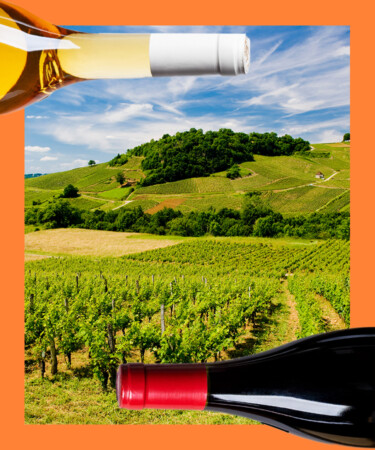I’ve always been fascinated by the wines of Jura, one of the smallest and least-known French wine regions. It’s still so under the radar that it’s not even mentioned in some well-known wine guides, while dismissed as little more than a footnote in others.
But I knew I would find a good chapter on Jura in Rosemary George’s still-indispensable 1990 volume, “French Country Wines.”
“The Jura, in a remote corner of France on the borders of Switzerland, is the home of some of the country’s most individual wines,” writes George, who earned her Master of Wine in 1979 and was one of the first women to do so.
Her description rang true after my recent tastings of Jura wines. Some were poured for me in Paris last month by a small group of producers at Wine Paris & VinExpo Paris 2024, a big wine trade event; I tasted more of them when I got back to New York.
The wines of Jura, both white and red, are indeed unique, with many of them made from varieties rarely seen beyond the mountainous, cool-climate region, namely the red Poulsard and Trousseau and the white Savignin — hardly household names in the wine world. But to those who know them, their often-limited production is coveted.
Jura lies just east of Burgundy and, like its more famous neighbor, the soils are dominated by clay and limestone, the latter infusing many of the wines with considerable minerality. Also in a nod to Burgundy, there’s a good deal of Chardonnay and Pinot Noir grown in Jura, along with some Gamay, with prices that still make them bargains when compared with many Burgundies. Many of the domaines practice organic farming.
Among the reds, Poulsard is a thin-skinned grape that produces wines that may be light in color but hardly lightweight in taste with their earthy, red fruit notes that make them wonderful companions to white meats and fish. Trousseau wines are a bit bigger, darker, and more tannic and lean more toward red meat pairings.
In an interview in Paris, Pierre-Armand de Laguiche of Château d’Arlay, whose family has been making wine in Jura for 800 years, describes the wines as “powerful and perfumed.” But he does not mean they are big wines. “On the contrary,” he says, “they’re subtle, they’re multi-layered.”
There are seven appellations within Jura. The most important are Arbois and Côtes du Jura, which account for most of the wines you’ll find in the U.S. Though still relatively obscure, Arbois was one of the first six French wine appellations introduced in 1936. All these years later, “we are a multitude of small producers in a small area,” says de Laguiche. “This gives us our identity.” He adds that while there is considerable interest in Jura among Burgundy producers, “we are particularly careful with that because we don’t want to dilute our identity.”
And in case you were wondering about the name Jura, it’s worth noting that the Jurassic geologic period was named after the Jura Mountains, where the sedimentary soils from the period — 201 million to 145 million years ago — were first identified.
Indeed, there’s quite a history in the wines of Jura.
Here are six top Jura red wines to try:
Bénédicte & Stéphane Tissot Arbois Poulsard Vieilles Vignes 2020
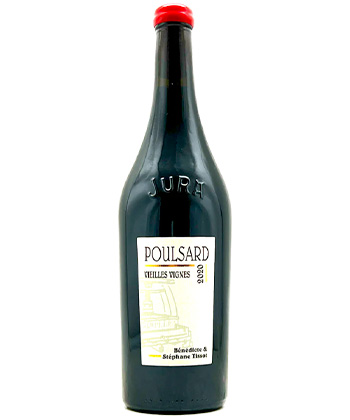
From one of Jura’s natural wine stars, this Poulsard is light in color but leaves a powerful impression. You’ll notice that it’s quite cloudy, reflecting the fact that it is not filtered, as “natural” wines tend not to be. And yes, you’ll find a little harmless sediment at the bottom of the bottle. But this wine is delicious, seeming to evolve with just about every sip. Redcurrant and red plum aromas and flavors are joined by hints of leather, wet stone, forest floor, and baking spices as it opens up. Bravo.
Price: $46
Buy This Wine
Rijckaert Arbois Poulsard ‘La Rouge’ 2022
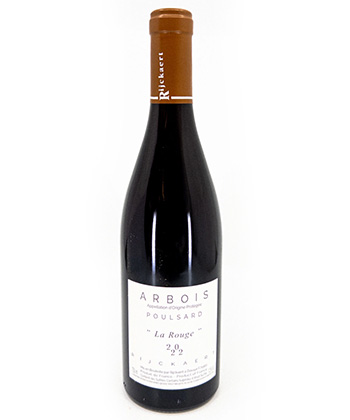
You can further understand the Burgundy-Jura connection with the story of Jean Rijckaert. When he created his domaine in 1998, Rijckaert, a Belgian, bought four hectares of vineyards in Burgundy’s Mâcon region and five hectares in Arbois in Jura, envisioning its potential. While Burgundy now makes up the lion’s share of his portfolio, there are eight Jura wines, including this charming Arbois Poulsard. Spicy cherry, strawberry, and blueberry flavors are punctuated by a good deal of earth. Fine tannins make it effortless to drink. Checking back, I realized that I first wrote about one of Rijckaert’s wines, an Arbois Chardonnay, that was all of $12 back in 2005.
Price: $33
Buy This Wine
Domaine Désiré Petit Arbois Trousseau ‘Les Grandes Gardes’ 2020
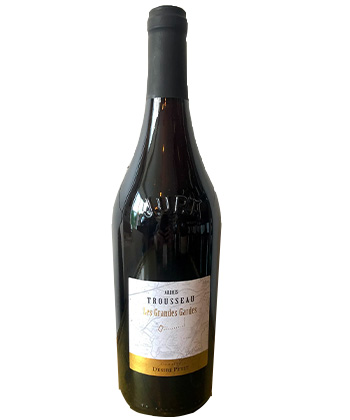
There’s a lot going on in this Trousseau, with overripe red fruit flavors accented by smoke, black licorice, minerals, and a hint of black pepper. The estate was founded in 1932 by Désiré Petit and until 1970 was only about 1.5 hectares. It’s now run by the third generation of the Petit family with 27 hectares of organically farmed vineyards.
Price: $30
Buy This Wine
Domaine Rolet Arbois Rouge ‘Tradition’ 2022
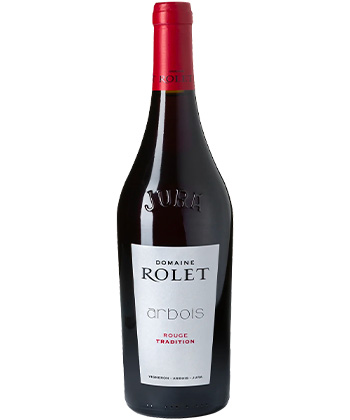
From one of the best-known Arbois producers, this wine is a blend of Pinot Noir, Trousseau, and Poulsard grapes grown organically. Cédric Ducoté, the winemaker and general manager, told me he aims to make wines that “won’t make you tired” and will make you look forward to a second glass. He succeeds with this fresh wine that shows lovely red fruit notes with a touch of spice.
Price: $30
Buy This Wine
Vincent Richard Côtes du Jura Trousseau ‘Hermétique’ 2022
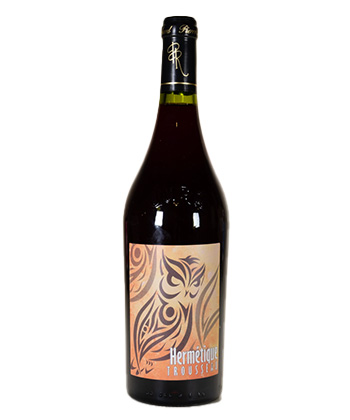
This is a somewhat bigger wine; its 13.6 percent ABV is on the higher side of Jura reds. Its dark fruit notes — blackberry and blueberry — and medium tannins make it an excellent pairing for steak, lamb, and highly seasoned meats like pork chops seasoned with ajika. The fruit is accented by hints of braised meat, dark chocolate, and mineral notes. Aged in stainless steel, it reminded me of Cabernet Franc from the Loire Valley.
Price: $29
Buy This Wine
Chateau d’Arlay Côtes du Jura Vin Rouge Pinot Noir 2017
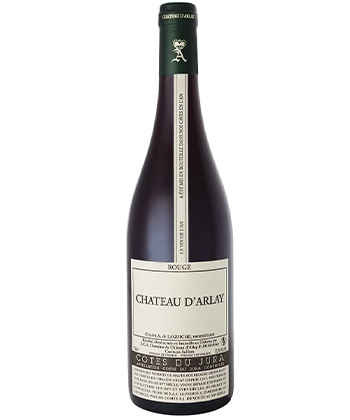
Layered and complex, with a good deal of spice accenting the concentrated red fruit notes. Subtle tannins frame the fruit in this distinctive Pinot Noir.
Price: $40
Buy This Wine
Next up: White Wines of Jura
